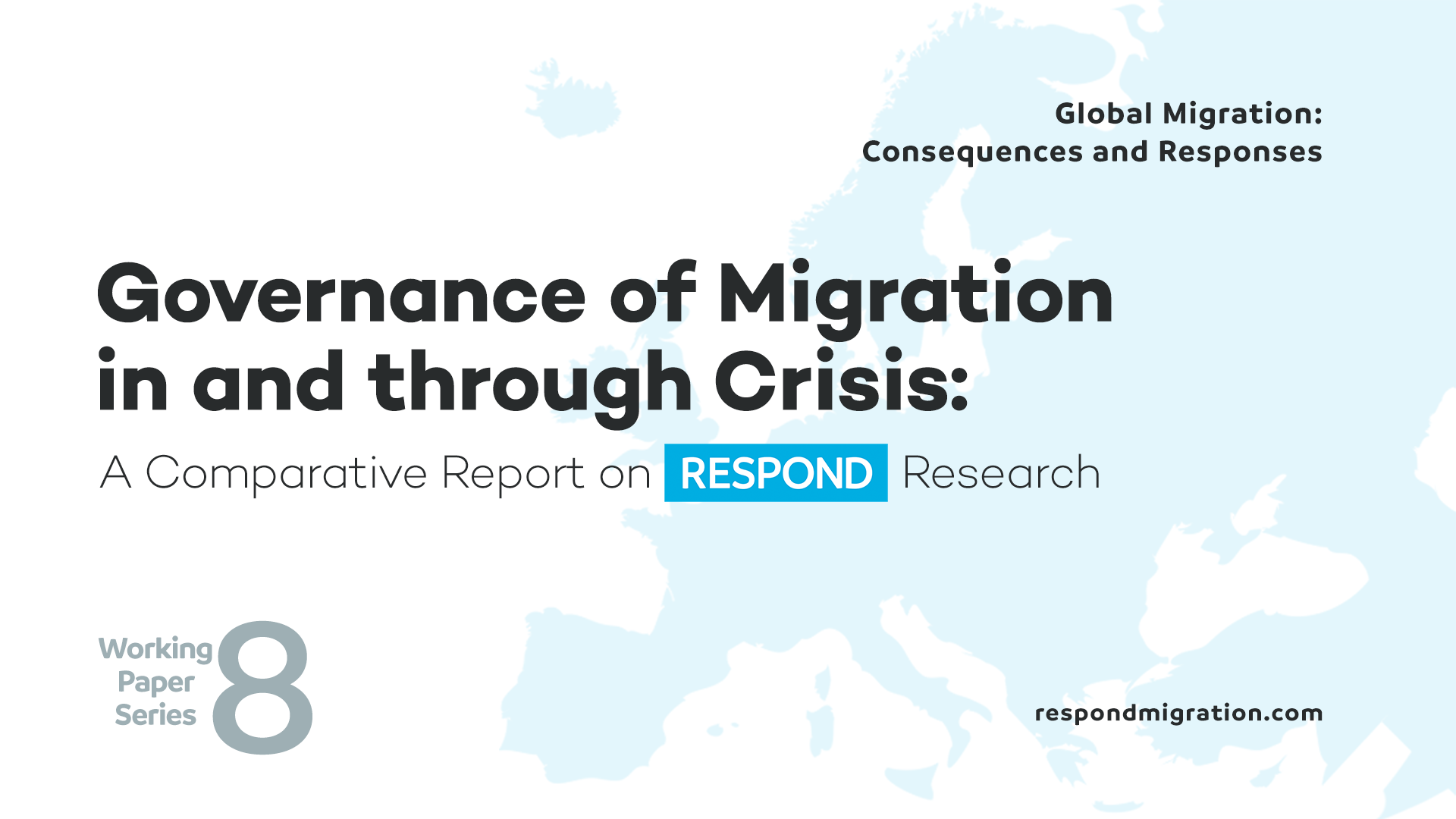Governance of Migration in and through Crisis: A Comparative Report on RESPOND Research
by Zeynep Sahin-Mencütek - Swedish Research Institute in Istanbul | Soner Barthoma - Uppsala University | N. Ela Gökalp-Aras - Swedish Research Institute in Istanbul
Based on the meta-analysis of thematic country and comparative reports produced in the EU Horizon 2020 RESPOND project, this report seeks to revisit multilevel governance as a theoretical framework in comparative migration research. Focusing on the period of 2011-2018 where the governance of migration has been very much affected by the ‘crisis’ climax, we question the adaptability of multilevel governance in describing main patterns in governance, their drivers and consequences. The report problematizes the generalized notions of local, nationalist, centralist turn in migration management, instead offering more nuanced understanding that highlights the dynamism and tensions within spatial and temporal axes.
Firstly, we propose that when migration is managed through and in a crisis, such as in mass migration or protracted refugee situations, actors at multilevel governance settings choose from a repertoire of possible and available actions, including strict non-admission, deterrence, restriction, ad hoc or welcoming responses.
Second, we contend that four characteristics have increasingly marked the inscription of ‘crisis’ in the multilevel governance of migration, including: 1) complicated and fragmented legal systems, 2) multiplicity of actors, 3) re-nationalisation and restrictiveness and 4) increased complexity and uncertainty.
Lastly, we conclude that multilevel governance in and through crisis inevitably leads to temporary governance models that become visible through policy convergence in strengthening restrictive measures, sophistication of remote controls, eradication of the norms and rights-based procedures of the refugee regime. The temporality of these governance modes runs the risk of governance failure and gridlocks in developing common solutions (for example, the EU’s internal solidarity crisis or problems in relocation quotas).
Please find the entire report by clicking on one of the links below:

